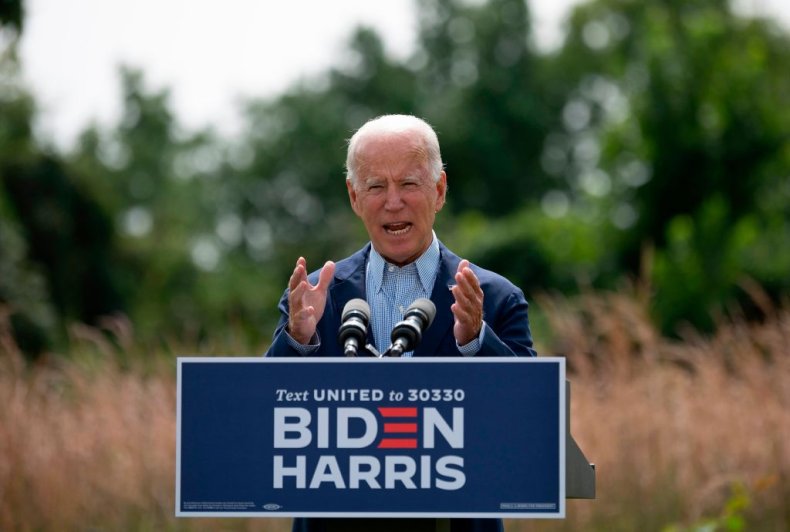Scientific American Magazine Backs Biden in First-Ever Presidential Endorsement, Calling Trump’s Actions ‘Catastrophic’
For the first time in its 175-year history, Scientific American has formally endorsed a presidential candidate, backing Democratic nominee Joe Biden and slamming President Donald Trump’s actions as “catastrophic.”
“Scientific American has never endorsed a presidential candidate in its 175-year history. This year we are compelled to do so. We do not do this lightly,” the magazine explained in an editorial published on Tuesday morning.
The magazine went on to criticize Trump’s response to the coronavirus pandemic as well as his opposition to the well-established science pointing to the impact of man-made climate change on the planet and society.
“The evidence and the science show that Donald Trump has badly damaged the U.S. and its people—because he rejects evidence and science. The most devastating example is his dishonest and inept response to the COVID-19 pandemic, which cost more than 190,000 Americans their lives by the middle of September. He has also attacked environmental protections, medical care, and the researchers and public science agencies that help this country prepare for its greatest challenges,” the magazine’s editors wrote, urging readers to support Biden in the November 3 election.

Democratic presidential candidate Joe Biden speaks outside the Delaware Museum of Natural History in Wilmington, Delaware, on September 14. “If we have four more years of Trump’s climate denial, how many suburbs will be burned in wildfires?” Biden asked.
JIM WATSON/AFP/Getty
The magazine’s editors explained that Biden has put forward “fact-based plans to protect our health, our economy and the environment. These and other proposals he has put forth can set the country back on course for a safer, more prosperous and more equitable future.”
“The pandemic would strain any nation and system, but Trump’s rejection of evidence and public health measures have been catastrophic in the U.S.,” they wrote.
Tim Murtaugh, communications director for Trump’s reelection campaign, argued that the president had acted decisively to curb the spread of the pandemic. “President Trump has listened to the medical experts every step of the way to fight the coronavirus, and the experts agree that the restriction on travel from China saved thousands of American lives,” he said in an email to Newsweek.
Beyond the Trump administration’s bungled response to the COVID-19 outbreak in the U.S., the president has been staunchly opposed to government actions addressing environmental concerns. Prior to becoming president, Trump infamously described climate change—which is considered established fact by the vast majority of scientists—as a Chinese hoax.
After taking office, Trump formally began withdrawing the U.S. from the landmark Paris Climate Accord on June 1, 2017. If the U.S. fully withdraws from the agreement as planned under the current administration, it will be the only nation in the world that is no longer affected by the international treaty.
During a trip to California on Monday, the president again dismissed science when discussing the massive forest fires taking place in the American west. “I don’t think science knows, actually,” Trump said in a response to an official urging him to heed the scientific consensus on climate change.
“It’ll start getting cooler. You just watch,” he insisted, despite all scientific evidence demonstrating the opposite.
Biden strongly criticized Trump and his record on climate change and science in Monday remarks.
“If we have four more years of Trump’s climate denial, how many suburbs will be burned in wildfires?” Biden asked during a speech in Delaware. “How many suburban neighborhoods will have been flooded out? How many suburbs will have been blown away in superstorms? If you give a climate arsonist four more years in the White House, why would anyone be surprised if we have more of America ablaze?”
Updated September 15, 2020 at 7:01 p.m.: A statement from the Trump reelection campaign has been added.






